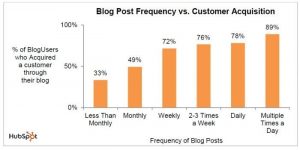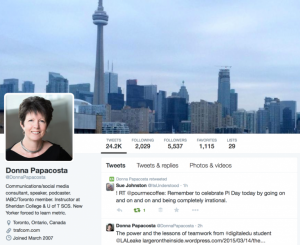Authors Guild And Others Blast Internet Archive’s Lending Library
The nonprofit Internet Archive is comparable to the original Napster, and a digital book lending program run by the nonprofit is similar to “the most flagrantly illegal pirate websites.”
At least that’s what the Authors Guild, National Writers Union, American Society of Journalists and Authors and other groups representing writers are now arguing.
The Authors Guild (which lost its battle with Google over that company’s book digitization project) and others say the Internet Archive’s digital loan program “is merely a new spin on the much-discredited ‘space-shifting’ or ‘format-shifting’ argument that internet-enabled infringers from Napster onward have tried and failed to foist on the courts.”
The organizations’ statement comes in a friend-of-the-court brief filed with U.S. District Court Judge John Koeltl in New York. The groups are urging Koeltl to side with four book publishers — Hachette Book Group, HarperCollins Publishers, John Wiley & Sons, and Penguin Random House — that are seeking summary judgment in a lawsuit claiming that the Internet Archive infringes copyright.
The Internet Archive began lending e-books in 2011 through its “controlled lending program,” which involves loaning one digital copy at a time for each hard copy that’s been scanned and digitized.
In March of 2020, when libraries shuttered in response to the COVID-19 pandemic, the Internet Archive expanded its original program by launching a “National Emergency Library,” which offered downloads of the same scanned hard copy to multiple users at once. That program ceased in June of 2020.
While the “emergency” library is obviously what sparked the lawsuit, the publishers’ complaint, brought in 2020, challenges both initiatives — the original program as well as the short-lived “emergency” library.
Hachette and the others say copyright law does not allow the Internet Archive to copy and distribute digital book files.
Among other arguments, the publishers say the Internet Archive “freerides on the authors’ literary contributions,” and competes with publishers by distributing unlicensed e-books that the publishers sell.
For its part, the Internet Archive says its lending programs are protected by fair use principles. The group argues that the original program is “fundamentally the same” as brick-and-mortar library programs, but with a different distribution system.
The Authors Guild and other organizations urge Koeltl to reject that position, arguing that the Internet Archive’s lending program undermines authors’ ability to license electronic rights.
“Determining how to separate and monetize their bundle of rights requires authors and their representatives to make careful decisions about how they want their work to be released,” the groups write.
“In recent years, given the advent of technology that makes reading literary works on electronic devices possible, along with the growing popularity of ebooks, the decision of whether to grant licenses to ebooks and other electronic rights are key considerations for authors and other creators,” the organizations continue, adding that the Internet Archive’s actions “interfere with authors’ abilities to separately license their rights.”
(16)
Report Post







